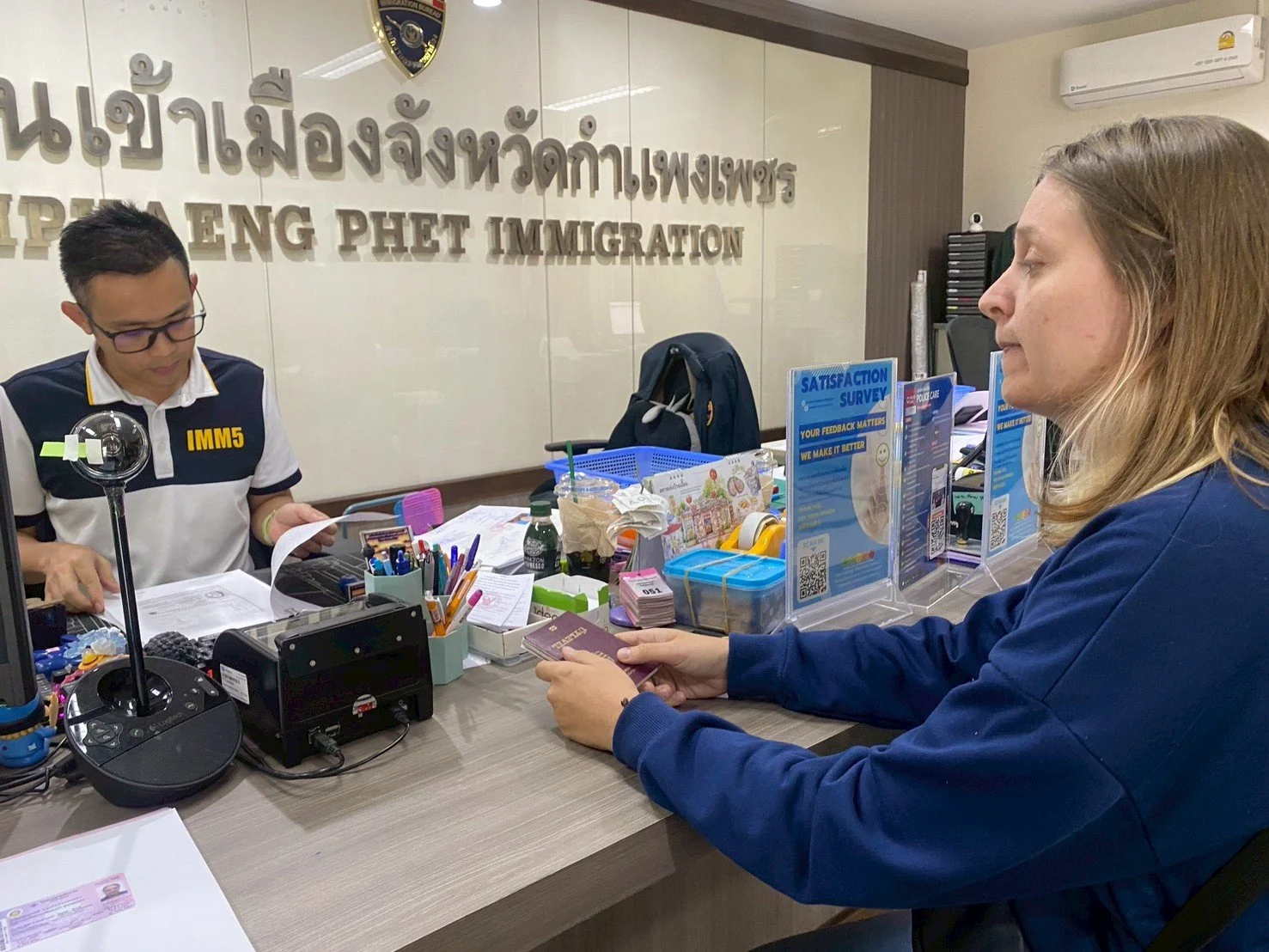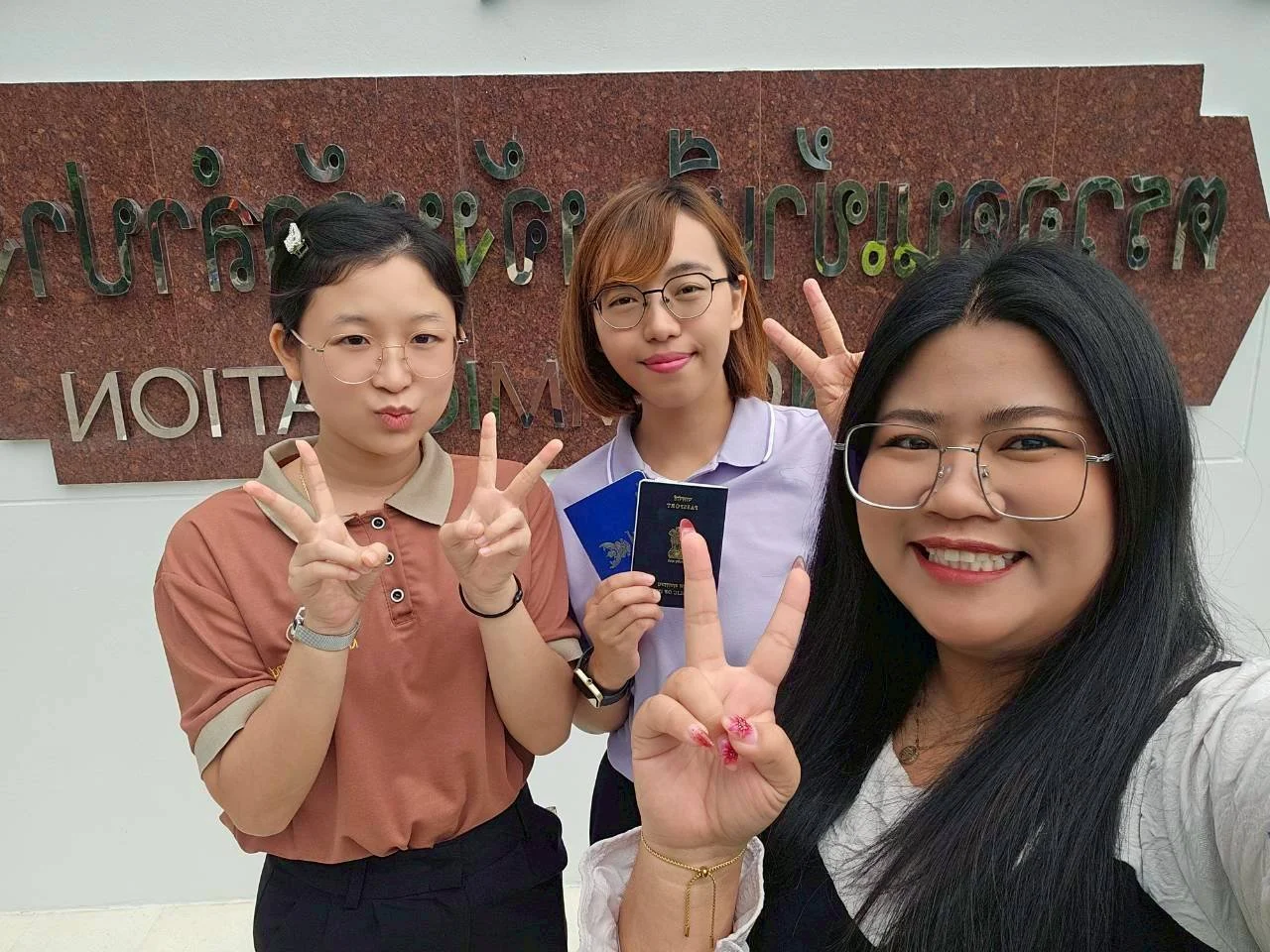Teach English in Thailand: Guide for Teachers — KET
Thailand, the Land of a Thousand Smiles, beckons English teachers with its tropical climate, affordable cost of living, and vibrant culture.
Whether you’re drawn to the bustling streets of Bangkok, the serene mountains of Chiang Mai, or the paradisaical beaches of Phuket, teaching English in Thailand offers a unique blend of meaningful work and adventure.
With its proximity to Southeast Asia’s gems, Cambodia, Laos, Myanmar, and Malaysia, Thailand is a launchpad for exploring the region.
Are you ready to teach in Thailand?
This guide covers everything you need: qualifications, visas, teaching jobs, and the cultural experience awaiting you.
At Kids English Thailand, we’ve helped teachers secure Non-Immigrant B visas, work permits, and teaching licenses for over a decade with a 100% success rate.
Let’s dive into the requirements and opportunities to make your teaching abroad dream a reality!
Why Teach English in Thailand?
Teaching English in Thailand isn’t just a job it’s a lifestyle.
The demand for English teachers is soaring as Thailand invests in global communication.
From public schools to international schools, opportunities abound.
Additionally, the low cost of living means your salary goes further, leaving room for travel to temples, national parks, and beyond.
Core Requirements for Teaching English in Thailand
To teach English in Thailand, you’ll need to meet these essentials:
1. A Valid Passport
Your passport is your ticket in. Ensure it’s valid for at least six months beyond your planned stay.
2. A Bachelor’s Degree
A four-year bachelor’s degree from an accredited university is non-negotiable for most teaching jobs in Thailand. It doesn’t matter if it’s in History, Biology, or Drama the Thai government accepts any field.
This requirement is key for securing a Non-Immigrant B visa and work permit.
3. Native or Near-Native English Proficiency
Native English speakers from Australia, Canada, Ireland, New Zealand, South Africa, the U.K., or the U.S. are preferred.
Non-native speakers can still apply but must prove fluency with a TOEIC score of 600+ or equivalent English proficiency certificate.
4. A Clean Criminal Background Check
A clean criminal background check is mandatory.
You’ll need an official report from your home country, often notarized, to qualify for a work permit.
5. TEFL Certification (Highly Recommended)
While not always required, a TEFL certification boosts your employability.
Most reputable schools seek 120-hour certifications, available online or in-person.
It’s your edge in a competitive job search.
6. Thai Medical Check
To obtain a work permit, you’ll undergo a medical exam at a Thai hospital or clinic.
A licensed doctor must certify you’re free from:
Leprosy
Tuberculosis
Elephantiasis
Drug Addiction
Alcoholism
Syphilis
7. Letters from Schools and the Thai Government
Once hired, your employer provides a job offer letter, and the Thai Ministry of Education issues supporting documents for your visa and permit.
Visa and Work Permit Process: Step-by-Step
Teaching legally in Thailand requires a Non-Immigrant B visa and a work permit.
Here’s how it works:
Step 1: Secure a Job Offer
Find a teaching position through platforms like Kids English Thailand or job boards. Your employer will provide a contract and a visa sponsorship letter.
Step 2: Apply for a Non-Immigrant B Visa
Submit these to a Thai embassy or consulate:
Valid passport
Bachelor’s degree and transcripts
Clean criminal background check
Job offer letter
Passport photos
Processing takes 1–2 weeks, and the visa is initially valid for 90 days.
Step 3: Enter Thailand and Get a Work Permit
Once in Thailand, your employer will assist you in applying for a work permit within 90 days. You’ll need your medical check results and additional documents from your school.
Step 4: Extend Your Stay
With a work permit, you can extend your visa annually, tied to your teaching contract.
Pro Tip: Kids English Thailand offers visa assistance and 24/7 support to streamline this process.
TEFL Certification: Your Key to Success
A TEFL certification isn’t mandatory, but it’s a game-changer. Here’s why:
Competitive Edge: Employers favor TEFL-certified teachers for their training in lesson planning and classroom management.
Higher Salaries: TEFL holders often earn 35,000–45,000 THB per month, versus 25,000–30,000 THB without.
Variety of Jobs: From public schools to international schools, TEFL opens doors.
TEFL courses range from 120-hour online options to immersive in-country programs. Pair it with a bachelor’s degree, and you’re set to teach English in Thailand.
English Language Requirements: Native vs. Non-Native Speakers
Native English speakers have an advantage, but Thailand welcomes skilled non-native teachers too.
If you’re from a non-English-speaking country, a TOEIC score of 800+ proves your fluency. Schools value passion and proficiency over birthplace.
Age Restrictions: Can You Teach at Any Age?
Thailand’s official retirement age is 55–60, but schools often hire beyond this age range.
Younger teachers (21–40) are common for young learners, yet teaching experience trumps age.
Whether you’re a fresh graduate or a seasoned educator, there’s a place for you.
Salary and Cost of Living in Thailand
How Much Do Teachers Earn?
English teaching jobs in Thailand offer:
Public Schools: 25,000–35,000 THB/month
Language Academies: 30,000–40,000 THB/month
International Schools: 50,000–100,000+ THB/month (with benefits like free housing)
Is It Enough?
Absolutely. Thailand’s affordable cost of living means:
Rent: 5,000–15,000 THB/month
Food: 50–150 THB/meal
Transport: 20–100 THB/trip
In Chiang Mai or Sukhothai, 20,000 THB/month covers a comfortable life. In Bangkok, aim for 25,000–30,000 THB.
You’ll even save for weekend trips to Chiang Rai or the Phi Phi Islands!
Where Can You Teach in Thailand?
Bangkok
The capital blends modernity and tradition.
Expect higher salaries (35,000–50,000 THB) but a steeper cost of living.
Chiang Mai
Northern Thailand’s cultural hub offers a laid-back vibe, affordable rents (5,000–10,000 THB), and salaries of 30,000-40,000 THB.
Phuket
Beachside teaching comes with a salary of 35,000-45,000 THB/month, although living costs are higher.
Sukhothai
Home to our Teach & Discover Thailand Program, this province offers laid-back charm, low cost, and 33,000+ THB salaries.
Teaching Jobs in Thailand: Opportunities Galore
Public Schools
Entry-level roles for new teachers.
Salaries start at 25,000 THB, with structured working hours.
Private and International Schools
Higher pay (50,000+ THB) and perks like visa assistance.
A TEFL and prior teaching experience help here.
Language Academies
Flexible schedules and 30,000–40,000 THB/month.
Ideal for part-time or evening teaching roles.
Kids English Thailand Placements
Our program guarantees job placement in Sukhothai with training, housing support, and a competitive salary.
Cultural Experience of Teaching in Thailand
Teaching English in Thailand immerses you in:
Thai culture: Friendly Thai people, vibrant festivals like Songkran, and respect for education.
Cuisine: From pad thai to mango sticky rice, markets burst with flavor.
Travel: Explore Southeast Asia think Vietnam’s Halong Bay or Laos’ Luang Prabang.
Teachers bond with students and other teachers, creating lasting memories. Whether in rural villages or urban hubs, you’ll feel part of the community.
How to Find Teaching Jobs in Thailand
Peak Hiring Seasons
March–April and September–October, before school terms, are prime times.
Job Search Tips
Online: Check Ajarn.com, TEFL jobs sites, or our website
Networking: Connect with expat groups on Facebook or LinkedIn.
Apply Early: Submit a resume, cover letter, and TEFL certificate.
Interview Process
Most schools interview in-person after arrival, though some offer Skype calls. Be ready to demo a lesson!
Teach & Discover Thailand Program: Your Gateway
Ready to teach English abroad?
Our Teach & Discover Thailand Program in Sukhothai offers:
Training: TEFL prep and cultural orientation.
Guaranteed Placement: Salaried teaching jobs with visa support.
Community: Join a network of passionate English teachers.
With a low cost of living and 33,000+ THB/month, you’ll thrive while exploring Thailand’s natural beauty.
FAQs About Teaching English in Thailand
Is Teaching Experience Required?
No, but it helps. TEFL certification often substitutes for prior teaching experience.
Can I Teach Without a Degree?
Rarely. Volunteer roles exist, but paid teaching jobs need a bachelor’s degree.
Are Teachers in Demand?
Yes! Thailand’s focus on English fluency fuels demand, especially in Thai schools.
Is It Worth It?
Absolutely. Affordable cost, Thai culture, and travel make it a rewarding gig.
Final Thoughts
We hope this post has inspired and empowered you on your teaching journey in Thailand!
Kids English Thailand is here to support you with tips, insights, and resources to make your experience truly amazing.
Want to dive deeper or have questions?
Check out our related posts below, or connect with our community of educators making a difference in Thailand.
Let’s keep thriving together!

























The paper "Blue Book" is dead.
📵 As of January 28, 2026, Thailand has fully transitioned to the mandatory digital e-Work Permit system. 🛂
This veteran-verified roadmap covers the mission-critical shifts you need to know:
✅ The 12-minute biometric Iris Scan
✅ Mandatory ThaID App verification
✅ Real 2026 government fee breakdowns
Join the 20+ teachers we’ve successfully deployed in 2026 so far. 🚀